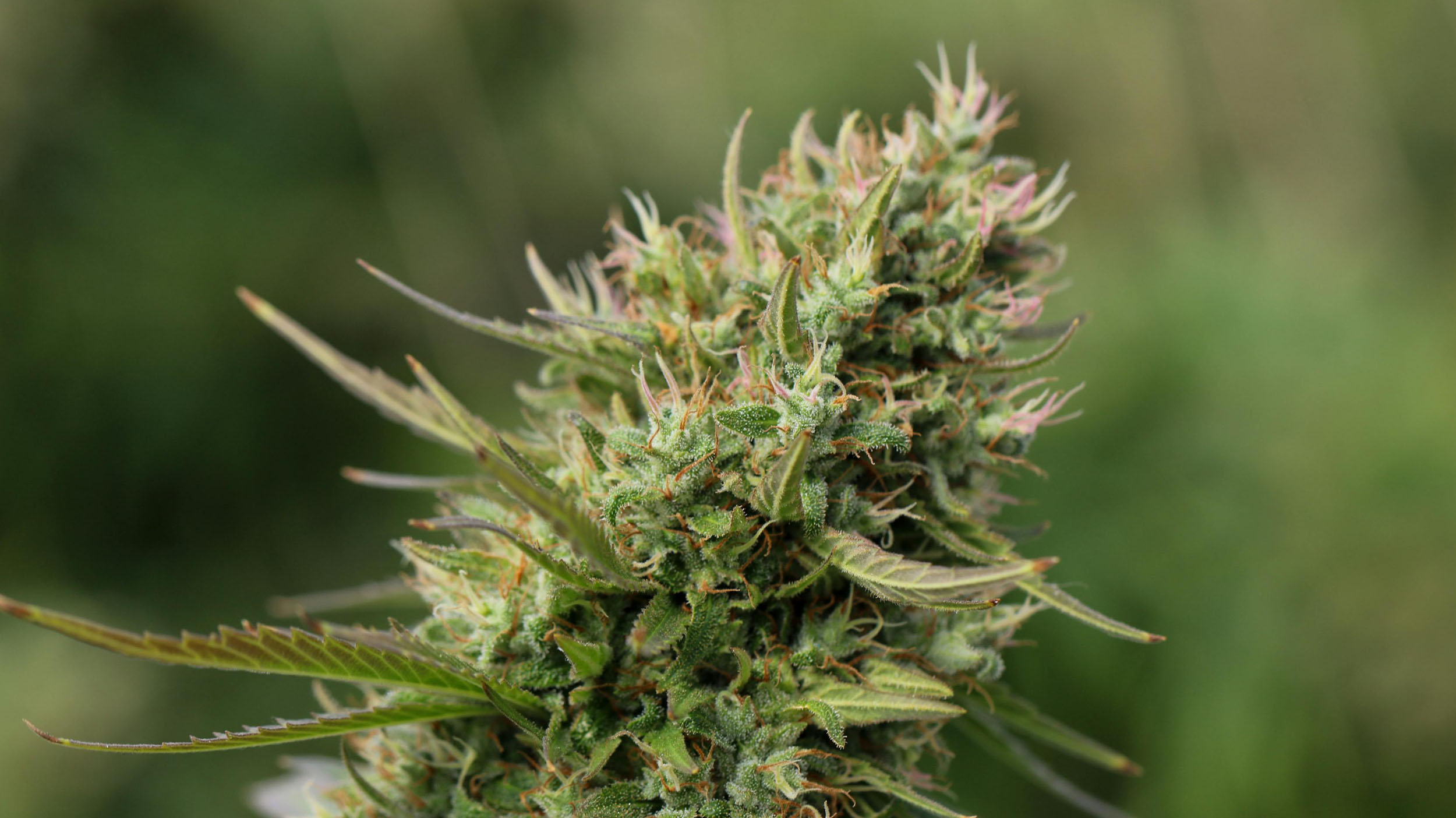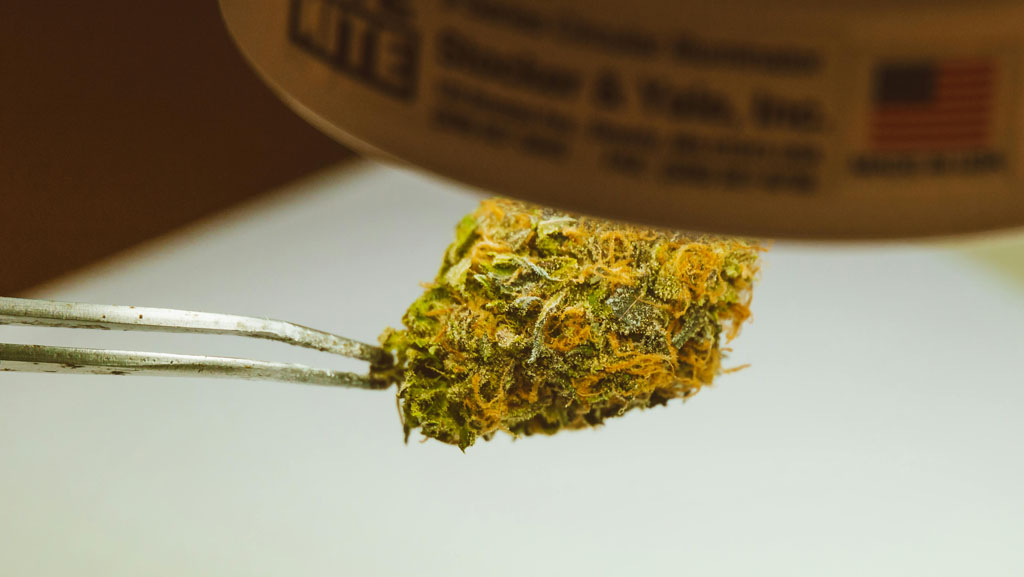
What is THCP? Understanding the latest cannabis compound and its effects
What is THCP? Understanding the latest cannabis compound and its effects
The world of cannabis has seen significant developments in recent years, especially with the discovery of new cannabinoids like THCP (Delta-9-tetrahydrocannabiphorol). While THC (Delta-9-THC) remains the most well-known psychoactive compound in cannabis, THCP is creating waves for its potential potency and therapeutic applications. Although this cannabinoid was discovered only in 2019, it’s already sparking significant interest across both scientific and medical communities. But what exactly is THCP, and how does it fit into the UK’s evolving cannabis landscape?
Contents
What is THCP?
THCP is a naturally occurring cannabinoid found in cannabis. It shares a similar structure with THC but stands out due to its notably longer alkyl side chain, containing seven carbon atoms compared to THC’s five. This structural difference results in THCP binding more effectively to the body’s cannabinoid receptors, particularly the CB1 receptors in the brain, making it significantly more potent than traditional THC. Some studies suggest that THCP binds up to 33 times more effectively to CB1 receptors than THC.
This increased binding affinity means THCP could potentially produce more intense psychoactive effects at much lower doses than THC, although research into the full extent of its effects is still limited.

How does THCP differ from THC?
While both THCP and THC share similarities, their effects can differ substantially. The main difference lies in THCP’s ability to bind more effectively to cannabinoid receptors due to its longer alkyl chain.
This results in:
- Stronger psychoactive effects: Users may experience a more intense euphoria, sensory enhancement, and overall more pronounced effects compared to traditional THC.
- Higher potency: Some experts believe that THCP could be up to 33 times stronger than THC, making it an intriguing option for those seeking potent therapeutic relief.
Potential uses and benefits of THCP
As THCP is still a relatively new discovery, there is little clinical research available on its specific uses and benefits. However, based on its interaction with the endocannabinoid system.
There are some promising possibilities:
- Pain relief: Due to its higher potency, THCP may be particularly useful for patients who need higher levels of THC for conditions such as chronic pain, cancer-related pain, or other debilitating conditions.
- Sedative effects: Anecdotal reports suggest that THCP could provide relief for insomnia, offering more pronounced sedative effects than THC.
- Neuroprotective properties: Some believe that THCP could be beneficial for conditions like Parkinson’s disease or Alzheimer’s due to its neuroprotective potential.
However, it is important to note that as of now, there are no comprehensive clinical studies on THCP, so its full medical potential remains unclear.

Is THCP safe? Risks and side effects
Like THC, THCP can produce psychoactive effects. Because of its potency, these effects may be more intense than what users experience with standard THC.
Potential side effects of THCP include:
- Dry mouth
- Dizziness
- Lethargy
- Increased heart rate (though not commonly reported)
Given its stronger potency, it’s essential to approach THCP cautiously. If you’re considering using THCP for medical purposes, starting with a very small dose is highly recommended. It’s also important to be mindful of your body’s response before increasing the dosage.
How to consume THCP
THCP is typically found in low concentrations in cannabis, making it challenging to extract in significant amounts from plants. However, with advances in extraction technology.
THCP can now be found in a variety of products, including:
- Vape products: Vaporising THCP allows for quick absorption, leading to faster effects.
- Tinctures and oils: For those who prefer precise dosing and longer-lasting effects, tinctures and oils are a good option.
- Edibles: THCP-infused edibles might be an excellent choice for those seeking prolonged effects, though they may take longer to take effect compared to smoking or vaping.
In the UK, medical cannabis is available through private medical cannabis clinics, where patients with a range of conditions, including chronic pain, mental health disorders, and other qualifying conditions, can access cannabis-based products with a prescription. Unlike NHS prescriptions, which are typically limited to specific conditions like severe epilepsy and multiple sclerosis, private clinics offer more flexibility in treating a broader array of conditions.

Legality of THCP in the UK
The legal status of THCP in the UK is closely tied to the legal standing of cannabis itself. Cannabis remains a controlled substance under the Misuse of Drugs Act 1971, making recreational use illegal. However, medical cannabis, which includes products containing CBD, THC, and other cannabinoids, is legal in the UK under certain conditions.
For medical use, patients must have a prescription from a specialist doctor. In the case of THCP, it’s important to note that while it’s not explicitly mentioned in UK drug laws, its potency and similarity to THC could mean that it falls under the same legal restrictions. This means that THCP products, especially those derived from cannabis strains with higher THC levels, may face legal limitations or restrictions.
Currently, THCP-based products are not widely available on the UK market, and there is no clear guidance on its use outside of clinical research settings.
The future of THCP in Medical Cannabis
The discovery of THCP has sparked significant excitement within the medical cannabis community. Its potent effects could offer new therapeutic possibilities, particularly for patients who require higher doses of THC for conditions like chronic pain, insomnia, or severe nausea.
However, it’s essential to remember that THCP is still in the early stages of research. More studies are needed to fully understand its potential benefits and risks. In the UK, as with other cannabinoids, THCP products would need to go through rigorous testing and regulation before they can be made available to patients for medical use.
Conclusion: Should you try THCP?
While the promise of THCP is exciting, especially for those looking for potent relief from conditions like pain and insomnia, it’s important to approach this cannabinoid with caution. Due to its potency, THCP may have stronger effects than traditional THC, so careful dosing is crucial.
As research into THCP continues, we will likely learn more about its medical applications and safety profile. For now, patients in the UK seeking cannabis-based treatments should work closely with a medical professional to understand what options are available and how they align with their therapeutic needs.
At CB1 Medical, we specialise in providing expert consultations and customised treatment plans for patients considering medical cannabis as part of their wellness journey. Our team is committed to supporting you in navigating this option safely and effectively. If you’re interested in learning whether medical cannabis is right for you, use our eligibility checker.